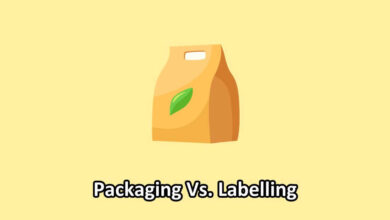“The main difference between Capitalism and Socialism is in who owns the means for production. Under Capitalism, the means for production are owned by private individuals or companies. Under Socialism, the means for production are either controlled by a state entity or jointly owned by those that work in it.” The following article will help us understand the complete difference between capitalism and socialism.
Capitalism Vs Socialism (Comparison Table)
| Capitalism | Socialism |
|---|---|
| Capitalism refers to the economic system common in the country, in which trade and industry are owned by private or corporate entities. | Socialism refers to the economic framework in which the government or a community owns and controls the country’s economic operations. |
| In capitalism, the primary motive of economic activity is to generate profit. | In socialism, the motive and objective of economic activity and production is to meet human needs. |
| In capitalism, private individuals and companies own the means of production such as factories or lands. | The means of production in socialism are owned and controlled collectively by the community or state. |
| In capitalism, economic decisions are made by individuals and businesses. | In socialism, economic decisions are made by the government. |
| Capitalism has a free market, with supply and demand forces determining the prices and production. | In socialism, the government or central planning determines production and distribution based on societal needs. |
| In capitalism, the distribution of wealth and resources is unequal, with some individuals and companies amassing great wealth and power. | In a socialist economy, the distribution of wealth and resources is more equal, with the goal of meeting the basic needs of all members of society. |
| Capitalism leads to a class society with a tiny minority of wealthy people at the top and a large majority of poor people at the bottom. | Socialism strives for equality among all people. |
| Capitalism encourages competition. | Socialism emphasizes cooperation. |
| For Example, the United States, the UK, Germany, and Canada are considered strong capitalist countries. | For Example, North Korea, Cuba, Sweden, and China are considered strong socialist countries. |
What Is Capitalism?
Capitalism is an economic system in which private individuals or businesses own the means of production and operate for profit. The production of goods and services is based on market demand and prices, rather than on central planning.
Moreover, in a capitalist economy, businesses compete with each other for customers and profits. They are free to set their own prices and decide what to produce. This competition can lead to innovation and efficiency.
However, capitalism also has its drawbacks. For example, it can create income inequality as those who own the means of production reap the rewards while workers receive only a fraction of the profits. Additionally, because businesses are motivated by profit, they may not always act in the best interests of consumers or the environment.
Salient Features of Capitalism
- Private Property: Under capitalism, private individuals or businesses own the means of production, such as factories, land, and machinery. This allows them to earn profits by selling goods and services.
- Competition: In capitalist economies, businesses compete with each other to win customers and market share. This drives innovation and efficiency as companies strive to be the best in their industry.
- Consumer sovereignty: In capitalism, consumers are sovereign, meaning they have the ultimate power over what gets produced. Businesses must produce what consumers demand in order to make a profit.
- Free markets: Free markets are another key feature of capitalism. They allow buyers and sellers to trade without government intervention or regulation. This promotes economic growth and efficiency.
- Laissez-faire: Laissez-faire is a French term that means “let it be.” It’s often used to describe capitalist economies, where the government leaves businesses alone to operate freely without interference.
- Profit motive: The profit motive is what drives capitalists to produce goods and services. They want to make money by satisfying consumer demand in the marketplace.
What Is Socialism?
Socialism is defined as “a way of organizing a society in which major industries are owned and controlled by the government rather than by private individuals.” In a socialist economy, the government owns and manages key industries, such as healthcare, education, energy, and transportation. The goal of socialism is to create a more egalitarian society, in which everyone has an equal opportunity to succeed.
In a nutshell, socialism is an economic system where the means of production are owned and controlled by the state or community as a whole. Production is carried out for the benefit of society, rather than for private profit.
Four Features of Socialism
- Socialism is an economic system in which the government owns and controls the means of production.
- Secondly, socialism is a political system in which the government controls all aspects of the economy
- Socialism is an economic system in which workers receive compensation based on their contribution to society
- Finally, socialism is a social system in which people are treated equally and have equal access to education, health care, and other social services
Two Disadvantages Of Socialism
In theory, socialism sounds great. But in practice, it often leads to two problems:
- The first problem is that socialist economies tend to be very inefficient. This is because government bureaucrats are not good at making decisions about what products people want to buy or how best to produce them. As a result, socialist economies often experience shortages of goods and services.
- The second problem with socialism is that it gives rise to corrupt and powerful government officials who use their positions to enrich themselves instead of working for the benefit of society as a whole. This can lead to crony capitalism, where businesses get special favors from the government in exchange for kickbacks or bribes.
Key Differences Between Capitalism and Socialism
While comparing capitalism vs socialism, here we have included some of the key differences between them as well. These include the following:
- Meaning – Capitalism is an economic system based on private ownership of the means of production. On the other hand, socialism is an economic system based on public or collective ownership of the means of production.
- Motive and Objective – In capitalism, the primary motive for economic activity is to generate profit, while in socialism it is to meet human needs.
- Competition – Capitalism encourages competition, while socialism emphasizes cooperation.
- Purpose – Finally, capitalism leads to a class society with a tiny minority of wealthy people at the top and a large majority of poor people at the bottom, while socialism strives for equality among all people.

Conclusion
In conclusion, the main difference between capitalism and socialism is the ownership of the means of production. In capitalism, the means of production are owned by private individuals, while in socialism, the means of production are owned by the government. Both systems have their pros and cons, but ultimately it is up to each individual to decide which system they prefer.




4 Comments